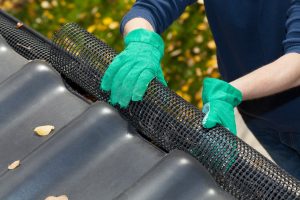 While excess moisture and humidity in your basement may seem like more of an annoyance than a serious problem, you might be surprised at the potential consequences of ignoring it. Two negative outcomes, for example, are mold growth and the possibility of foundation damage. Mold Growth: Mold, which tends to grow and thrive in moist environments, is both an eyesore and a potential health hazard. Not everyone is allergic to mold spores, but those who are can experience a variety of uncomfortable symptoms, ranging from eye irritation and sneezing to skin rashes and asthma attacks. According to the U.S. Environmental Protection Agency, “The key to mold control is moisture control.” In the case of plumbing leaks or flooding, fast action is necessary to prevent mold growth. The E.P.A recommends that affected areas be dried out within 24 to 48 hours.Prevention and Control Tactics
While excess moisture and humidity in your basement may seem like more of an annoyance than a serious problem, you might be surprised at the potential consequences of ignoring it. Two negative outcomes, for example, are mold growth and the possibility of foundation damage. Mold Growth: Mold, which tends to grow and thrive in moist environments, is both an eyesore and a potential health hazard. Not everyone is allergic to mold spores, but those who are can experience a variety of uncomfortable symptoms, ranging from eye irritation and sneezing to skin rashes and asthma attacks. According to the U.S. Environmental Protection Agency, “The key to mold control is moisture control.” In the case of plumbing leaks or flooding, fast action is necessary to prevent mold growth. The E.P.A recommends that affected areas be dried out within 24 to 48 hours.Prevention and Control Tactics
- Rain gutters on your house can help divert water away from your foundation, which is one factor in preventing basement leaks and excess moisture. When rain gutters are not working properly, it’s usually the result of one or two things: 1) clogs caused by leaves and other debris, and 2) downspouts which fail to direct water far enough from the house. Diverting water away from your home can also help protect your foundation from premature cracking of crumbling. Although rain gutters need to be cleaned once or twice a year, there are low maintenance products available which let the rain water in, but keep the leaves out.
- Sump pumps: An essential device for wet basements is a sump pump — preferably the kind that work during extreme weather conditions and power outages. Those are the conditions under which homeowners need a working sump pump the most!
- Basement waterproofing solutions: Depending on the extent of your water seepage problem, you may want to consult a basement waterproofing service. Since prices, warranties, and services may vary quite a bit from one company to the next, it would be wise to get a few estimates. Basement waterproofing companies may recommend several options, such as exterior excavation, the installation of new drainage tiles and French drains, and the application of a waterproof membrane on the outside of foundation walls. Interior work may involve the creation of a drainage trench around the perimeter of the basement and the installation of drainage tiles or piping to channel excess water to a sump pump. So as you can imagine, basement waterproofing can be quite expensive. That’s why the best strategy is usually a preventative one.
- Damage control: One way to help prevent or minimize damage to your home from leaking water pipes or malfunctioning appliances is to have an automatic shutoff mechanism installed in your plumbing system. By detecting and responding to reductions in water pressure, it can turn off water flow at specific locations to keep flooding and property damage to an absolute minimum.
Other than doing everything you can to divert rainwater away from your foundation and being ready to respond to plumbing accidents, another method for controlling moisture is to install a dehumidifier in your basement. A local appliance outlet or large hardware store should be able to recommend a good, reasonably priced dehumidifier for your needs.